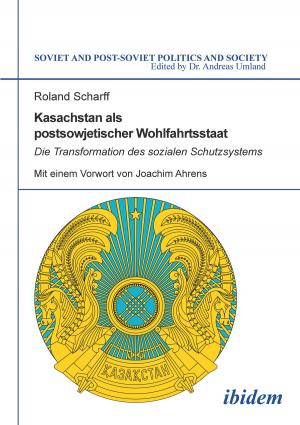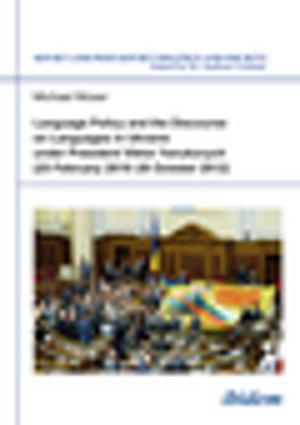Translating Boundaries
Constraints, Limits, Opportunities
Nonfiction, Social & Cultural Studies, Political Science, Politics, Economic Conditions| Author: | Stefanie Barschdorf, Lucille Chevalier, Laura Leden, Olha Lehka-Paul, Dalia Mankauskienė, Bieke Nouws, Cristina Peligra, Elisabeth Poignant, Dora Renna, Heleen van Gerwen, Tenglong Wan | ISBN: | 9783838271309 |
| Publisher: | ibidem | Publication: | June 29, 2018 |
| Imprint: | ibidem | Language: | English |
| Author: | Stefanie Barschdorf, Lucille Chevalier, Laura Leden, Olha Lehka-Paul, Dalia Mankauskienė, Bieke Nouws, Cristina Peligra, Elisabeth Poignant, Dora Renna, Heleen van Gerwen, Tenglong Wan |
| ISBN: | 9783838271309 |
| Publisher: | ibidem |
| Publication: | June 29, 2018 |
| Imprint: | ibidem |
| Language: | English |
Translation Studies have traditionally been known to be interdisciplinary. What better term to sum this up than boundaries? A term that means different things in different fields and can be applied to a multitude of topics. Political, personal, symbolic, or professional boundaries, boundaries of the mind as found in psychology, or boundaries in the sociological sense where they separate different fields of knowledge. From politics to geography, boundaries are everywhere. They need to be identified, drawn, or overcome—depending on circumstances and context. What are the boundaries translators and interpreters have to deal with? How do they relate to Translation Studies in general? Boundaries and translation go hand in hand. As the discipline grows and ever more elements of interdisciplinarity come into play, the more the question of what the boundaries of translation are needs to be asked. Some of the research topics presented in this collection may well extend the boundaries of the discipline itself, while others may look at the constraints and limits under which translators and translations operate, or showcase the role translation and interpreting play in overcoming social or political boundaries. It is with this in mind that the group of young researchers presented in this book has come together to create an overview of current research in Translation Studies. The papers offer insights into the state of the discipline in various nations, often touching on under-researched topics such as the role of translation in the creation of national as well as individual identities or the translation of popular music. They look at the role of culture and, more specifically, sociocultural influences on translation. At the same time, non-linguistic, intra- and extratextual factors are taken into account with particular attention to multimodality. What unites the papers collected is the general tendency to see translation as a means of bringing people together and enabling dialog, a means of overcoming ideological and social boundaries. By looking both to the past and the future of the discipline, the authors aim to (re)define the boundaries of Translation Studies.
Translation Studies have traditionally been known to be interdisciplinary. What better term to sum this up than boundaries? A term that means different things in different fields and can be applied to a multitude of topics. Political, personal, symbolic, or professional boundaries, boundaries of the mind as found in psychology, or boundaries in the sociological sense where they separate different fields of knowledge. From politics to geography, boundaries are everywhere. They need to be identified, drawn, or overcome—depending on circumstances and context. What are the boundaries translators and interpreters have to deal with? How do they relate to Translation Studies in general? Boundaries and translation go hand in hand. As the discipline grows and ever more elements of interdisciplinarity come into play, the more the question of what the boundaries of translation are needs to be asked. Some of the research topics presented in this collection may well extend the boundaries of the discipline itself, while others may look at the constraints and limits under which translators and translations operate, or showcase the role translation and interpreting play in overcoming social or political boundaries. It is with this in mind that the group of young researchers presented in this book has come together to create an overview of current research in Translation Studies. The papers offer insights into the state of the discipline in various nations, often touching on under-researched topics such as the role of translation in the creation of national as well as individual identities or the translation of popular music. They look at the role of culture and, more specifically, sociocultural influences on translation. At the same time, non-linguistic, intra- and extratextual factors are taken into account with particular attention to multimodality. What unites the papers collected is the general tendency to see translation as a means of bringing people together and enabling dialog, a means of overcoming ideological and social boundaries. By looking both to the past and the future of the discipline, the authors aim to (re)define the boundaries of Translation Studies.















